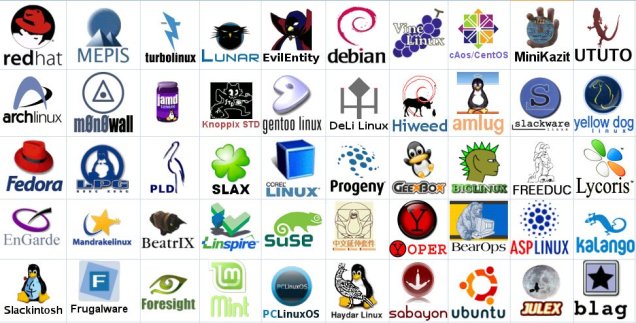Linux distributions or distros are operating systems based on a Linux kernel. They are generally open source and free, though some applications and softwares are paid. (Of course, we need to support our devs.) Due to this, many companies and communities can easily create new flavors of Linux catered to the users’ needs.
So, what do you want to use your Linux distro for? And do you know what to use? Read the following list to get some good insights and choices.
Beginners
For the newbies, ex-Windows or ex-Mac users, and everyone who loves a nice, simple UI and lots of beginner-friendly tools and apps. These distros try to make the difficult-to-understand parts of Linux into easy ones. Windows and Mac-like in appearance but Linux all the way around.
- Endless OS
- Linux Mint
- Deepin
- Pop!_OS
- Zorin OS
- elementary OS
- Robolinux
- Kubuntu
Creativity
For the creative and artistic minds out there. The distros here sport great capabilities in giving those Mac-level results. Content creation is a good one in Linux, if you don’t mind the limited capabilities unlike the powerful apps in Windows and Mac-like Photoshop and Ableton.
- Fedora Design Suite
- Ubuntu Studio
- KXStudio
- OSMC
- Apodio
- io GNU/Linux
- Iro
Embedded/IoT
For the hardware students, enthusiasts, professionals, and robot lovers. Linux allows deep learning in embedded applications and low-level programming. The distros in the list below are some of the OSes that can be run on top of popular development boards like Raspberry Pi, Arduino, etc.
- Ubuntu MATE
- Raspbian Stretch
- Kano OS
- Diet Pi
- Pidora
- Arch Linux ARM
Enterprise
For businesses and enterprises that want a much better alternative to proprietary OS. Essentially, they are maintained with a few bucks but it is still great at its claims. The Linux distros below are few of the business-grade OSes that will surely save both money and the organization.
- Red Hat Enterprise
- SUSE Linux Enterprise
- Ubuntu Enterprise
- Linux Mint
- TENS
Gaming
For the ex-Xbox fans and Unity lovers. The Linux distros today are slowly being shipped with the Steam Engine so even non-gaming Linux OS can run and play mid to high-end games. As of now, check out the following distributions with gaming spins and flavors.
- Steam OS
- Batocera.linux
- Linux Console
- Game Drift Linux
- Lakka OS
- Fedora Games Spin
- Ubuntu GamePack
- Manjaro mGAMe
- Sparky Linux – Gameover Edition
- Solus
General Purpose Distributions
The jack of all trades. They do almost everything: business, gaming, hacking, embedded development and more. One thing is that they will not be lightweight at all. These distros are naturally suitable to everyone and can perform many more functions through customization.
- Ubuntu
- Debian
- openSUSE
- Fedora
- Slackware
- Mageia
- Gentoo
Lightweight
For the memory-conscious, old computer users, and those who are really on a “budget”. Linux OSes can have an ISO file size of up to 10MB or less. Insane but true, as some of them are included in the list below. They can even run in mere USB flash disks! So much portability and size efficiency.
- Peppermint
- Lubuntu
- Linux Lite
- Crunchbang++
- LXLE
- Bodhi Linux
- antiX Linux
- Puppy Linux
- Tiny Core
- ArchBang
- Elive
- Proteus
- SliTaz
- wattOS
- Arch Linux
- NuTyX
Penetration Testing/Hacking
For the hackers of all colors, security companies or just testing your new computer’s safety. They are the hacker’s best friends and can do many functions with high-level tools. Not everyone is encouraged to have a distro like this, but if you’re interested, well it’s free.
- Kali Linux
- BackBox
- Parrot Security OS
- BlackArch
- Bugtraq
- DEFT Linux
- Pentoo Linux
- Caine
- Fedora Security Spin
- ArchStrike
Privacy
For the safety-minded and literally, anyone who doesn’t want someone snooping on them all the time. Take a research on these distros and explore how private you can be. Some have excellent security measures and others compete for your attention, too.
- Tails
- Whonix
- IprediaOS
- Discreete Linux
- Mofo Linux
- Qubes
Server
For the workstation guy, server admin, or anyone who thinks they have power over other computers. Certain distros come with full package of server support like SUSE and the most popular, CentOS. Still, it’s up to your supervisor what OS your organization needs to uee.
- CentOS
- Ubuntu Server
- SUSE Linux Enterprise Server
- Oracle Linux
- Clear OS
- Mandriva
Do you have more uses of Linux distros in mind? You may share it to us at EV Learners. You can also follow EV Learners for more Linux articles.
Photo Credits:

